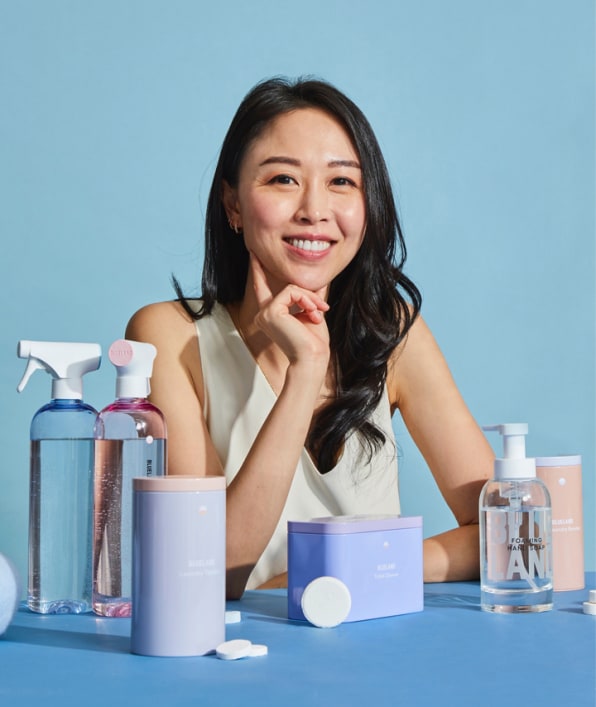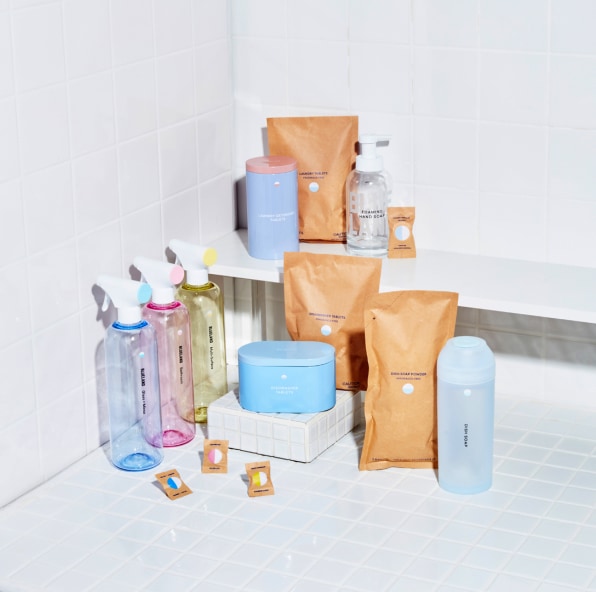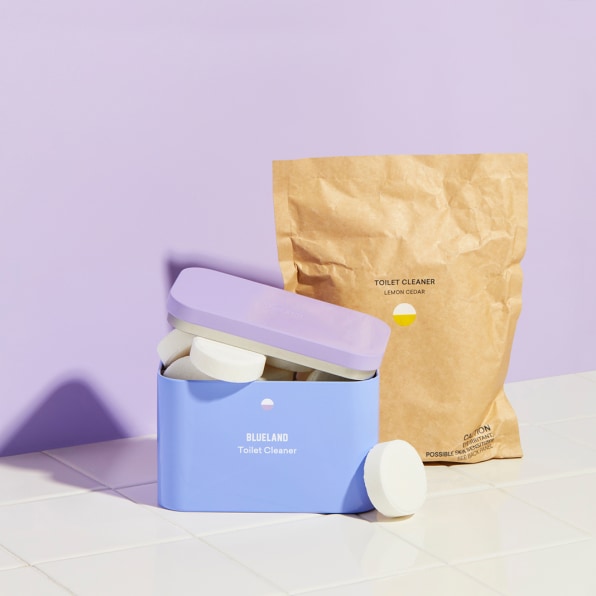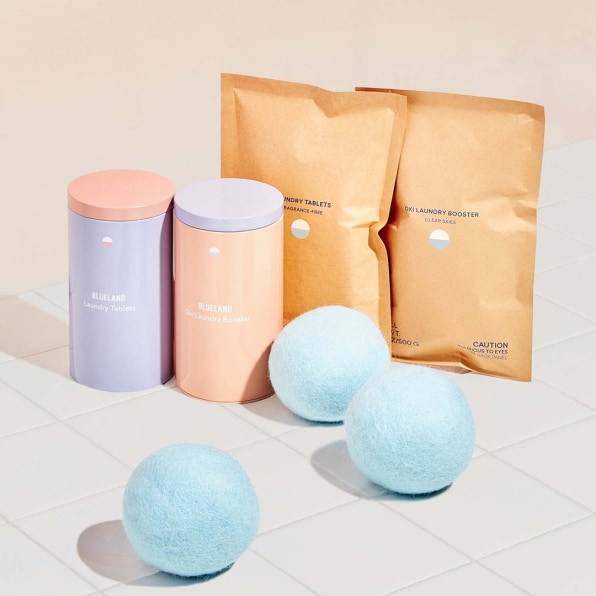Cleaning products are comprised of more than 90% water. So why are we buying new plastic hand soaps and cleaning sprays every time?

The world has created more than 8 billion tons of plastic, and 91% of it likely goes unrecycled. We could even be ingesting an estimated credit card’s worth of plastic every week—and our marine life is consuming it, too. It’s symptomatic of our current time, which some have dubbed the “Plasticene” era.

A significant problem is single-use plastics, those items we buy once and discard. Most are synthetic plastics, made from fossil fuels, which then stick around in the environment. Even many bioplastics, those made from organic sources, are nonbiodegradable. It is possible to engineer bioplastics that do break down—but companies also need to rethink production to make sustainability central from the very start.
In the cleaning products industry, single use products are often a given. But on today’s episode of the World Changing Ideas podcast, after a quick explainer on plastic manufacturing, we turn to a company that’s phased plastics out of its goods from the start. Founder of Blueland, Sarah Paiji Yoo, shares her story, from the initial reaction from the industry, which “categorically thought we were crazy,” to today, where she estimates that Blueland has helped to eliminate a billion plastic cleaning bottles from landfills and oceans.
It started with the realization that more than 90% of a cleaning product is water. “It doesn’t make sense that we are not only buying a new plastic bottle every time we run out of cleaning solution, we’re also paying for all this water,” Paiji Yoo says. She had a vision to create a cleaning product in dry tablet form, to which consumers would add water themselves. “It seemed like a good idea to just sell what the consumer needs,” she says.

After pushback from industry traditionalists, who told her, “[We’re] not sure how you guys plan to somehow magically convert these liquid ingredients into dry products,” she recruited chemical engineer Syed Naqvi, who became chief innovation officer. They developed a line of products, including hand soaps, cleaning sprays, and dish soaps, that generate the same “rich foam” experience and comparable prices, but with environmental benefits.

Paper packaging that protected the tablets was another obstacle, adding another year to their development. “You can’t just use plain old paper,” Paiji Yoo says, because the wrapping must preserve the contents from fluctuating conditions like high heat and humidity. “We actually thought that that was going to derail the entire concept.” B Corp and Climate Neutral-certified Blueland is now one of many cleaning product companies with this shared mission, including Grove Collaborative, CleanPath, and CleanCult.

Tune in to hear Blueland’s story—and their experience securing a deal on Shark Tank. “It’s definitely one of the most stressful experiences I’ve ever been through,” Paiji Yoo says. “You feel like the end goal of the folks on the other side of the table is to just rip you apart and make for good TV.”
You can listen and subscribe to World Changing Ideas on Apple Podcasts, Google Podcasts, Spotify, Stitcher, or wherever you get your podcasts.
